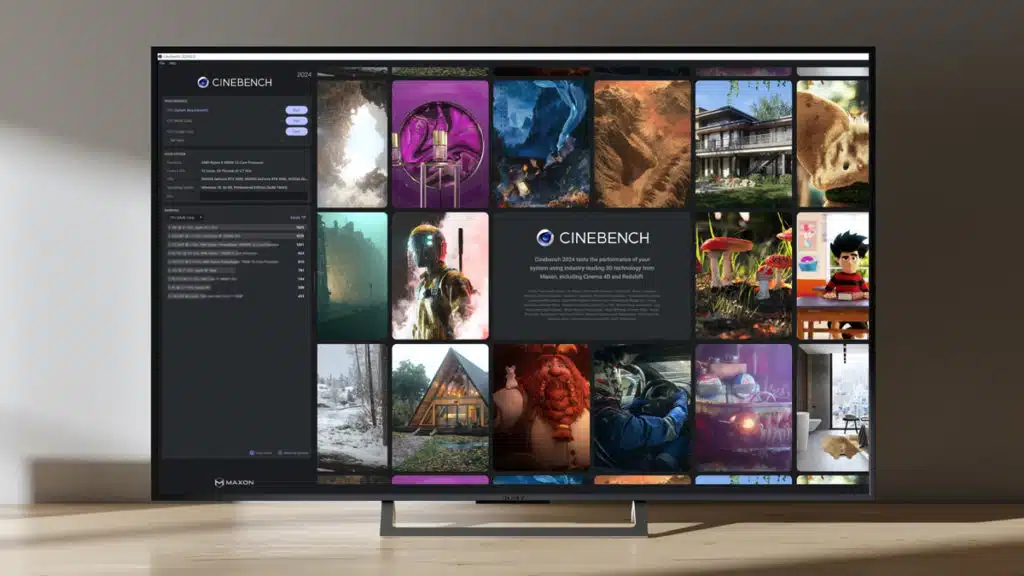
Maxon has announced that Cinebench 2024 for Windows (x86/64, ARM64) and MacOS is now available for download on the official Maxon website. The latest iteration of the industry-standard benchmarking software, Cinebench 2024 introduces a number of new features and improvements, including the revival of a GPU benchmark—something that has been absent from the software for a decade. Users will also find a revamped UI, support for more hardware configurations, and a new rendering engine in the form of Redshift, Cinema 4D’s default rendering engine.
- Redshift Rendering Engine Integration
- Cinebench 2024 ushers in a new era by embracing the power of Redshift, Cinema 4D’s default rendering engine. Unlike its predecessors, which utilized Cinema 4D’s standard renderer, Cinebench 2024 utilizes the same render algorithms across both CPU and GPU implementations. This leap to the Redshift engine ensures that performance testing aligns seamlessly with the demands of modern creative workflows, delivering accurate and consistent results.
- Dual Performance Evaluation: CPU and GPU
- Cinebench 2024 reinstates GPU benchmarking, a feature absent from Cinebench for the past decade. The latest version not only evaluates CPU performance; it also provides insights into the GPU’s capabilities, reflecting the evolving technological landscape of creative software and workflows.
- Wider Platform Compatibility
- Cinebench 2024 is designed to accommodate a broader range of hardware configurations. It seamlessly supports x86/64 architecture (Intel/AMD) on Windows and macOS, as well as Arm64 architecture to extend its reach to Apple silicon on macOS and Snapdragon compute silicon on Windows, ensuring compatibility with the latest advancements in hardware technology. Redshift GPU performance can be evaluated on systems with compatible Nvidia, AMD and Apple graphics processors.
- Unified Benchmarking Scene
- Cinebench 2024 streamlines the benchmarking process by utilizing a consistent scene file for both CPU and GPU testing. This innovation enables users to discern the advantages of leveraging Redshift GPU, providing a real-world glimpse into the benefits of harnessing cutting-edge graphics hardware for rendering tasks.
- Revamped User Interface
- Cinebench 2024 introduces a revamped user interface that enhances the user experience and showcases the incredible artistic endeavors achieved with the Redshift render engine in Cinema 4D. This dynamic interface serves as a testament to the potential of the Redshift engine while offering users a more intuitive and visually engaging experience.
- Under-the-Hood Enhancements
- Beyond the surface, Cinebench 2024 brings forth a host of performance-enhancing features. With a threefold increase in memory footprint compared to Cinebench R23, the software caters to the memory-intensive demands of modern projects. Moreover, a six-fold rise in computational effort and utilization of newer instruction sets ensures a benchmark that resonates with the complexity and sophistication of contemporary creative projects.
- Unparalleled Performance Evaluation
- It’s crucial to note that Cinebench 2024 scores cannot be directly compared to those of its predecessor, Cinebench R23. With the incorporation of Redshift, a different rendering engine, larger memory footprint, and more complex scenes, Cinebench 2024 offers a distinctly enhanced and accurate evaluation of modern hardware capabilities.
